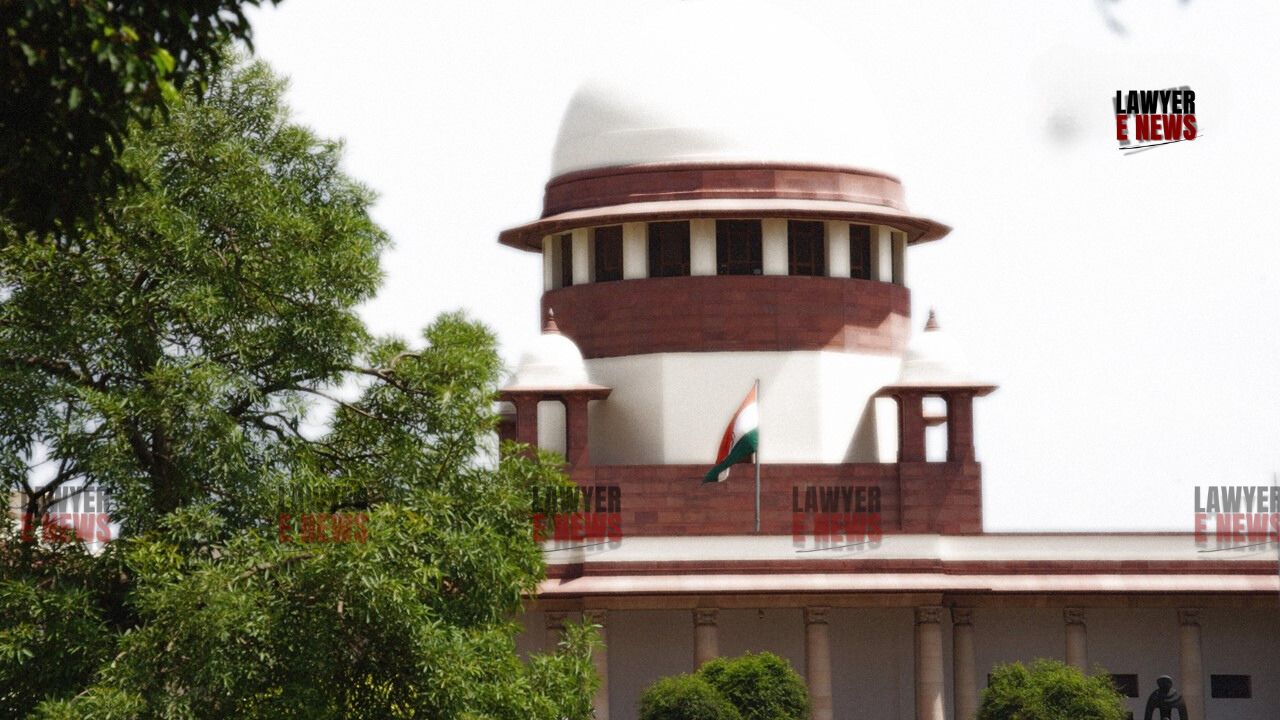-
by Admin
15 February 2026 5:35 AM



On October 24, 2024, the Supreme Court of India delivered a significant judgment in the case of Central Bureau of Investigation v. Ashok Sirpal, addressing the power of appellate courts to suspend not only sentences of imprisonment but also fines under Section 389 of the Criminal Procedure Code (CrPC). The bench, comprising Justice Abhay S. Oka and Justice Augustine George Masih, ruled that appellate courts may suspend the sentence of a fine with or without conditions, but the conditions must be reasonable and respect the appellant’s rights under Article 21 of the Constitution.
Ashok Sirpal, the respondent, had been convicted by a Special CBI Court in Delhi on January 27, 2016, for offenses under Section 120B read with Sections 420 and 419 of the Indian Penal Code (IPC), as well as Sections 13(1)(d) and 13(2) of the Prevention of Corruption Act, 1988. He was sentenced to seven years of rigorous imprisonment and imposed a fine of ₹95,00,000. In default of payment, he was directed to serve an additional 21 months of simple imprisonment. Following his conviction, Sirpal appealed to the Delhi High Court, which admitted his appeal and, on September 29, 2016, suspended his sentence, including the fine, pending the outcome of the appeal.
The appeal before the Supreme Court, filed by the Central Bureau of Investigation (CBI), focused on whether the High Court was correct in suspending both the imprisonment and the fine under Section 389 CrPC. The CBI argued that while the High Court had suspended the sentence, it had not clearly ordered a suspension of the fine, and thus Sirpal should remain liable to pay the fine or serve the sentence in default of payment.
The Supreme Court examined several issues:
Scope of Section 389 of the CrPC: The Court clarified that Section 389 allows an appellate court to suspend both imprisonment and fines. The Court emphasized that "the appellate court has the discretion to suspend a sentence of fine entirely or conditionally," observing that such conditions should not place undue hardship on the appellant.
Fine as Part of the Sentence: Citing Section 64 of the IPC, the Court noted that a fine constitutes a form of punishment, and non-payment can result in additional imprisonment. This underscores that fines should not be viewed as separate from the overall sentence.
Conditions for Suspension of Fine: The Court highlighted that conditions for suspension of fines should be reasonable and should not infringe on the appellant’s right to appeal or the fundamental right to personal liberty under Article 21 of the Constitution.
Appellate Court's Power to Suspend Sentence of Fine
The Court held that the power under Section 389 CrPC includes the discretion to suspend both the imprisonment and the fine imposed as part of a sentence. The Court emphasized, “There are no fetters on the power of the appellate court under Section 389 CrPC. The court can suspend the sentence and fine both, or may impose conditions for suspension.”
Under Section 64 of the IPC, the imposition of a fine is considered a form of punishment. The Court observed that "when a convicted person is sentenced to a fine, it is within the appellate court’s jurisdiction to suspend that part of the sentence as well." The Court further clarified that failure to pay a fine can lead to additional imprisonment, underscoring the seriousness of fines as part of criminal sentencing.
While upholding the High Court’s decision to suspend the fine, the Supreme Court modified the order to make the deposit of ₹15,00,000 a condition for suspension of the fine. The Court stated that this condition was reasonable given the allegations of embezzlement amounting to ₹46,00,000 and would not infringe upon the respondent’s right to appeal. The Court instructed that the deposited amount be transferred to the Delhi High Court and invested in a fixed deposit until the appeal is resolved.
The Supreme Court upheld the High Court’s decision to suspend the sentence of fine but clarified that the respondent’s partial payment of ₹15,00,000 would serve as a condition for this suspension. The Court directed that the deposited amount be invested in a fixed deposit and held by the Delhi High Court until the final disposition of the appeal.
Key Takeaways from the Judgment
Suspension of Fine: The Supreme Court confirmed that appellate courts have the power to suspend fines, not just imprisonment, under Section 389 CrPC.
Fine as Punishment: The Court underscored that fines constitute a punitive measure and that non-payment can lead to additional imprisonment under Section 64 IPC.
Reasonable Conditions for Suspension: Conditions imposed for the suspension of fines should be reasonable and should not impede the appellant’s right to appeal or violate fundamental rights.
This ruling sets an important precedent for cases involving suspension of fines, particularly in corruption cases where substantial financial penalties are often imposed. The decision provides clarity on the powers of appellate courts and reinforces the need for balancing judicial discretion with fundamental rights.
Date of Decision: October 24, 2024
Central Bureau of Investigation v. Ashok Sirpal
